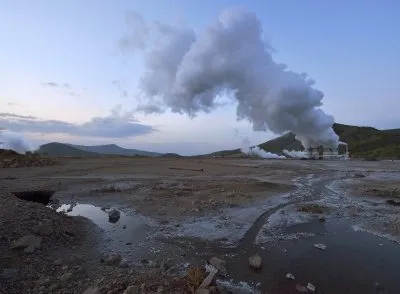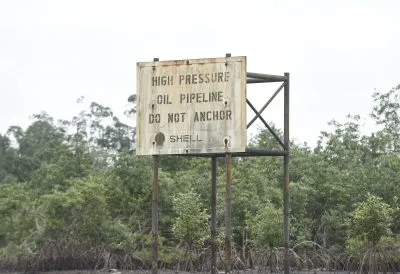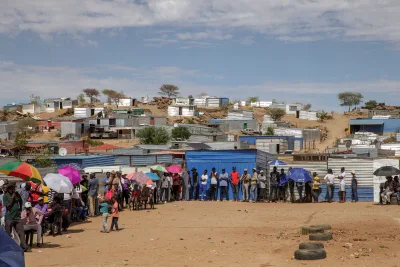This article is sponsored by Africa Finance Corporation
Africa is well positioned to leverage its natural resources to resolve not only its own energy challenges, but also to make a significant contribution to the global effort to transition to clean energy and to cool rising temperatures. According to Terje Pilskog, Chief Executive Officer of renewable energy company Scatec, Africa has 40% of the world’s solar energy potential, which can be used to develop affordable energy for the continent or for export. It can also produce green hydrogen and ammonia for use or export. The continent also has tremendous potential for wind energy.
Despite the abundance of these energy resources, Africa is the most energy-poor continent in the world. Currently, some 60% of people living in Africa do not have access to electricity, while over 80% rely on dirty fuels for cooking. The lack of affordable energy is directly linked to the continent’s inability to industrialise and it must be directly addressed as part of efforts to transform the continent.
“For us in Africa, it is about the energy deficit. People assume that Africa will always remain the same. No, Africa will have to industrialise and for us, what we are focussed on is how we chart a path to development that reflects our challenge and the need for climate resilience and the need for energy transition going forward,” says Samaila Zubairu, President and Chief Executive Officer of Africa Finance Corporation (pictured, right).
Africa’s sense of itself and the future
The energy question is critical to Africa’s sense of itself and the future. Professor Carlos Lopes of the University of Cape Town believes that Africa’s energy poverty is directly linked to the “colonial economic model” that it is yet to shake off, six decades after most countries in the continent became independent. Africa’s inability to add value to its raw materials prior to export is associated both with its energy poverty and with the commodities-based economy that dominates it.
The push for renewables offers Africa a chance to extricate itself from this model and to pursue a low-carbon-based industrial agenda. “The most important thing,” Professor Lopes believes, “is that we can power our industrialisation using green energy and use the strategic minerals to create value chains to boost opportunities for a commodities-based industrialisation.” This, he says, will also create jobs for the continent’s young people, including in agriculture if the right thing is done.
Tokelo Shai, an agriculture analyst at GreenCape, says that getting the energy transition right in agriculture is extremely important because of the high energy use in the sector. It is also critical to the continent’s infrastructure ambition, as it grapples with a $2.3 trillion deficit in power and transport alone.
Building for an uncertain century
Sandra Adéyêmi Akpéné Akua Freitas of Sustainable Solutions for Africa emphasises that development in Africa must be sensitive to climate change. “When we build infrastructure, it has to be here for a hundred years. We cannot predict what the climate will be in a hundred years – so any infrastructure we build has to account for climate change,” she says. As daunting as the need for transition sounds, there are grounds for optimism. Mohammed Mansour believes that a renewable future for Africa is within reach. “I see a future where we have energy access for all the population on the continent, diversified with renewable technologies – because that is the most efficient way to generate energy,” he asserts. He adds that the power pool has to be in place in the continent’s various regions, which will lead to a very efficient system that will lead to more productivity. It is not only Africa that will benefit from a low-carbon industrial push.
According to Thierry Pimi, Executive Managing Director, Cummins Africa, while Africa contributes the least to climate change, it will be most impacted by it. But a raft of policies, including carbon capture and a focus on green energy, means that Africa will play a very significant role.
The first carbon-neutral industrial zone is in Africa, reveals Samaila Zubairu, adding that more production in Africa will reduce the emissions and carbon footprints associated with industrial production. It will also mean that there will be much better origin traceability for products.
Access to funds
Despite these self-evident advantages, Africa remains at a disadvantage in accessing funds to develop its potential. The key thing is to find the resources, believes Sameh Shenouda, Executive Director and Chief Investment Officer of the Africa Finance Corporation. “Africa has a lot of wind and sun but only 1% of these resources are being used. Attracting finance is a very important thing, but African development finance institutions cannot do it alone. There is a huge gap and a huge need. “Lots of money is being talked about but very little is coming to Africa where we have the resources,” Shenouda (pictured, right) says.
For Africa, this means borrowing to finance its climate aspirations, which affects its balance sheet and takes away borrowing capacity that it needs to develop other sectors. “Africa believes that it needs more concessional money and grant resources to make sure it is playing its fair part but also paying its fair burden,” argues Amadou Hott, former Senegalese Minister of Economy, Planning and International Cooperation.
An inexcusable lack of investment
James Irungu Mwangi, Executive Director of the Dalberg Group, says it is inexcusable that Africa gets only 0.6% of investment in renewable energy, when it has the greatest potential of all the continents. It is important, he says, that Africa clearly articulates the value proposition from both the economic and climate perspectives, in order to capture the attention of international capital.
“We need to put projects on the ground that can attract investment – but capital also has to do its part and say that this is the cheapest route, if we can invest in it”. Ayaan Zeinab Adam, Senior Director and Chief Executive Officer of Africa Finance Corporation subsidiary AFC Capital Partners, shares this view. “Not enough money has reached Africa for adaptation from bilaterals and the climate finance arena, so we are trying to do private-sector adaptation and de-risk capital, so we can construct resilient infrastructure, support African countries to industrialise, localise manufacturing and reduce emissions from shipping,” she says. For its part, Africa has to organise itself so they can have bankable projects when the funding becomes available. In the view of Ibrahima Cheikh Diong, UN Assistant Secretary General and Director General of African Risk Capacity, project preparation is as important as investment – and so it is important to build that need into the public-policy discourse. Asma Diallo, Strategy and Operations Manager at Hydroma, concurs, adding that “if a project is well constructed to make business sense, the financing will follow. International markets believe that there is a lot of potential in Africa but you need projects that are well structured.”
Even as these conversations gather steam, Africa believes that it has a well-deserved claim to the world’s attention and support. Joyce Banda, former President of Malawi, puts Africa’s case succinctly: “When we talk about Africa’s energy transition, we must raise our voices. We are the victims of climate injustice but we are not saying come and do it for us. All we are asking for smart partnerships.” The world would do well to listen to this senior stateswoman and many like her who are now raising their voices. n
Africa Energy TV brought a series of insights from Cop27 on the topics driving the climate and energy-transition debates. Watch via https://bit.ly/3gwEDHS
 Sign in with Google
Sign in with Google 




